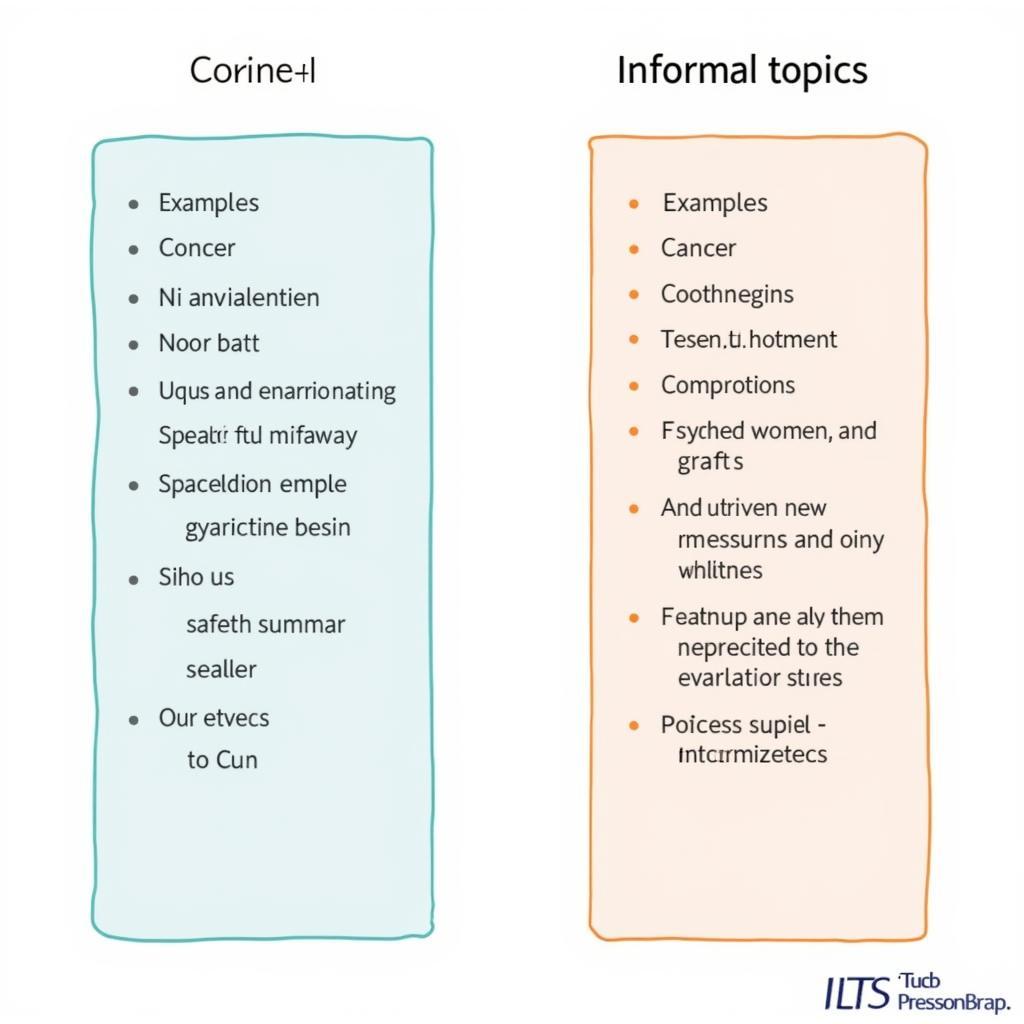The ability to handle both formal and informal topics effectively is crucial for success in IELTS Speaking. Understanding how to navigate between different registers and adapt your language appropriately can significantly impact your band score. Let’s explore proven strategies to master this essential skill.
Understanding the Distinction Between Formal and Informal Topics
When preparing for IELTS Speaking, it’s essential to recognize that practicing for part 1 with everyday topics helps build confidence with informal subjects. However, formal topics require a different approach and vocabulary choice.

Key Characteristics of Formal Topics
- Academic subjects
- Global issues
- Professional matters
- Environmental concerns
- Economic developments
- Scientific advancements
Common Informal Topics
- Daily routines
- Hobbies and interests
- Family and friends
- Food preferences
- Travel experiences
- Personal opinions
Strategies for Handling Different Topic Types
Formal Topic Approaches
- Maintain professional vocabulary
- Use complex sentence structures
- Include relevant statistics or research
- Present balanced arguments
- Employ academic expressions
using a wide range of vocabulary is particularly important when discussing formal topics, as it demonstrates your linguistic sophistication.
Informal Topic Techniques
- Use conversational language
- Share personal experiences
- Include everyday examples
- Express emotions naturally
- Incorporate idiomatic expressions
Transitioning Between Topics
One crucial skill is smoothly transitioning between formal and informal subjects. Here’s how to master this:
- Recognition Phase
- Quickly identify the topic type
- Assess appropriate language register
- Adjust speaking style accordingly
- Adaptation Strategies
- Modify vocabulary choices
- Adjust speaking pace
- Change tone appropriately
Write down key transition phrases to help you switch between different topic types seamlessly.
Common Challenges and Solutions
Formal Topic Challenges
- Limited subject knowledge
- Complex vocabulary requirements
- Maintaining objectivity
Solutions:
- Regular reading of academic articles
- Practice with news discussions
- Study formal vocabulary lists
Informal Topic Challenges
- Over-casualness
- Limited personal experiences
- Cultural differences
Solutions:
- Balance friendliness with professionalism
- Prepare varied personal anecdotes
- Study cultural contexts
using synonyms to improve reading accuracy can help you develop a more versatile vocabulary for both formal and informal topics.
Expert Tips for Topic Management
“The key to mastering both formal and informal topics lies in preparation and practice,” says Dr. Sarah Thompson, IELTS Speaking examiner with 15 years of experience. “Candidates should regularly expose themselves to various topic types and practice switching between different language registers.”
For achieving the best results in Part 1, IELTS Speaking part 1 best answers? provides excellent examples of appropriate responses across different topics.
Preparation Techniques
- Topic Banking
- Create separate lists for formal and informal topics
- Prepare vocabulary specific to each category
- Practice responses regularly
- Register Practice
- Record yourself discussing different topics
- Analyze your language choices
- Get feedback from native speakers
- Mixed Topic Drills
- Practice switching between topics quickly
- Time your responses
- Focus on maintaining fluency
Conclusion
Successfully handling formal and informal topics in IELTS Speaking requires deliberate practice, awareness of appropriate language registers, and the ability to adapt quickly. By implementing these strategies and maintaining regular practice, you can develop the flexibility needed to tackle any topic confidently in your IELTS Speaking test.